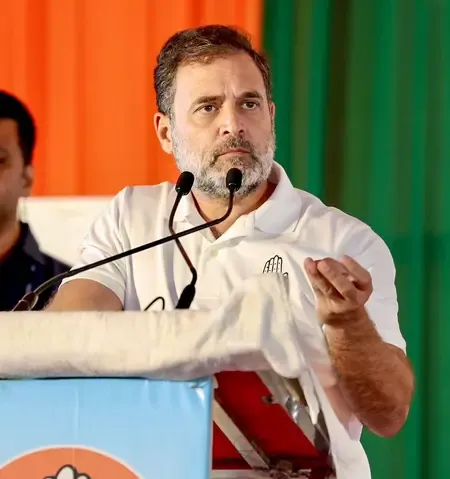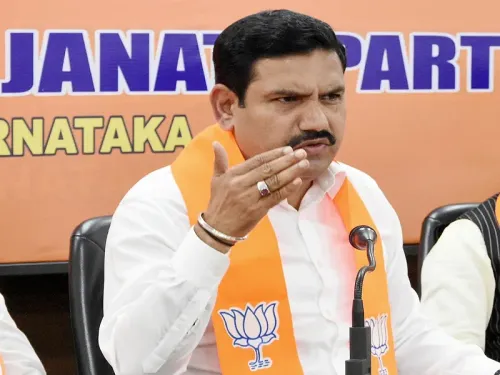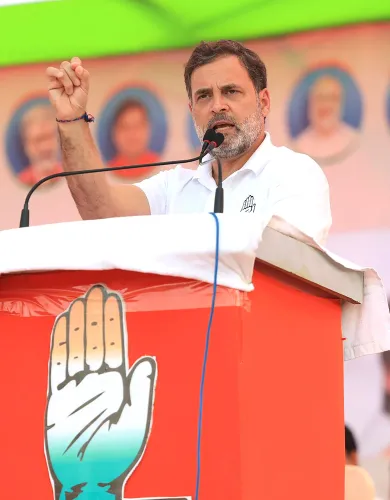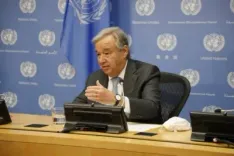Why is Pakistan Engaging in Unprovoked Firing on J&K LoC for Seven Consecutive Days?
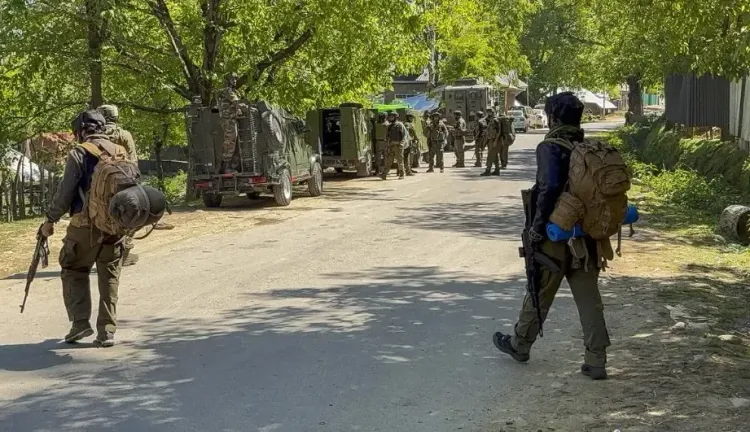
Synopsis
Key Takeaways
- Pakistan has engaged in unprovoked firing for seven consecutive days along the LoC.
- The situation escalated following a terrorist attack that killed 26 civilians.
- Prime Minister Modi has vowed to pursue and punish the terrorists and their supporters.
- Defence forces have been given a free hand to respond to provocations.
- Security forces are demolishing the homes of terrorists to send a strong message.
Jammu, May 1 (NationPress) - On Thursday, the Pakistan Army continued its trend of unprovoked firing on Indian positions along the Line of Control (LoC) in Jammu and Kashmir for the seventh consecutive day, according to officials.
A spokesperson from the Defence Ministry stated, "During the night of April 30 and May 1, Pakistan Army posts initiated unprovoked small-arms fire across the LoC opposite Kupwara, Uri, and Akhnoor sectors within the Union Territory of Jammu and Kashmir. The Indian Army responded proportionately to these provocations."
Over the past week, Pakistan has engaged in unprovoked firing along the LoC, with the Pakistan Rangers also targeting Indian posts with small arms in the Pargwal sector of Jammu district on Wednesday.
The situation has escalated between the two nations following the tragic attack by Lashkar-e-Toiba (LeT) terrorists, backed by Pakistan, that resulted in the deaths of 26 innocent civilians, including 25 tourists and a local, on April 22 in Baisaran meadow of Pahalgam.
The nation expressed outrage over this cowardly terrorist act, with Prime Minister Narendra Modi stating in his initial response to the Pahalgam killings that the terrorists, along with their handlers and supporters, would be pursued relentlessly.
Following a meeting with the Defence Minister, National Security Advisor, Chief of Defence Services (CDS), and the heads of the Army, Navy, and Air Force, Prime Minister Modi granted a free hand to the armed forces to respond to the Pahalgam terror attack, allowing them to determine the timing, targets, and scale of their retaliation.
Prior to this, Defence Minister Rajnath Singh held a 40-minute meeting with Prime Minister Modi on Monday after receiving a comprehensive briefing from the CDS on the readiness of the armed forces to handle any situation.
Jammu and Kashmir's Lieutenant Governor (L-G) Manoj Sinha conducted a security review meeting with Army Chief General Upendra Dwivedi in Srinagar recently.
The L-G instructed the Army to employ whatever force necessary to track down those responsible for the Pahalgam terror attack.
In an effort to convey a strong message to terrorists, their overground workers (OGWs), and sympathizers, security forces have been demolishing the homes of terrorists.
The L-G again evaluated the overall security situation in Jammu and Kashmir during a high-level security meeting on Wednesday.
Last Friday, two residences belonging to Adil Hussain Thokar and Asif Sheikh were demolished in the Tral and Bijbehara areas. Both individuals were associated with the LeT terrorist group involved in the Pahalgam killings.
Security forces have demolished the homes of 10 terrorists who are reportedly still active in the Kashmir Valley.
On Monday, the Jammu and Kashmir Assembly unanimously condemned the horrific terrorist attack and passed a resolution in response.

